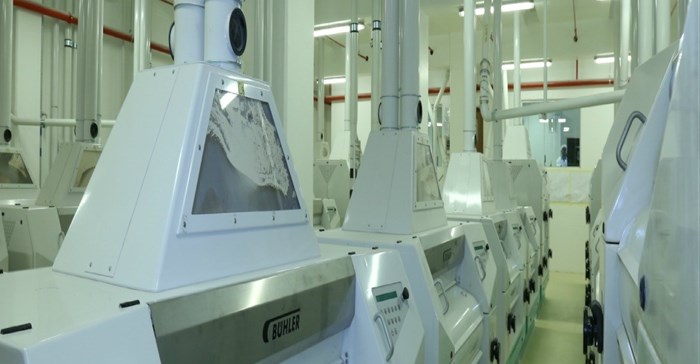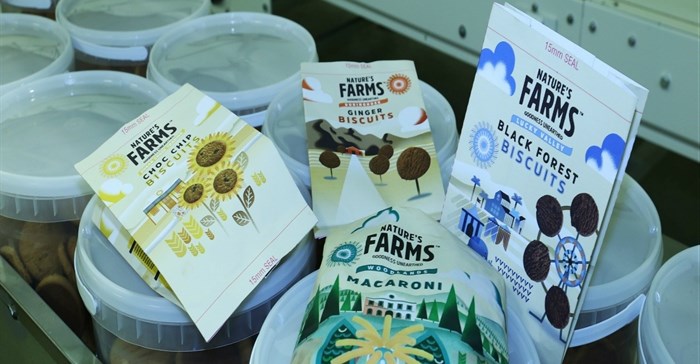
Top stories

Marketing & MediaWarner Bros. was “nice to have” but not at any price, says Netflix
Karabo Ledwaba 6 hours





More news


















Fundamental economic factors that influence supply and demand also influence commerce in agriculture. This includes global and local economic growth and stability, international price movements, weather patterns and political stability among others.
The middle class in South Africa and abroad is growing, amplified by improved humanitarian efforts, better education and communication, improved infrastructure and improved access to basic necessities. Increasing protein and premium foods consumption and other shifts in buying ability and food choice go hand-in-hand with increased wealth, including a growing interest in the quality of food and to know where food comes from.
The influence of the drought in South Africa, coupled with economic uncertainty and pressure in our country will flow through to consumers with a rise in food inflation. The impact of the drought on production, supply and prices will stabilise only after at least two years of sufficient rain.
Technology plays a major part in food production and distribution. It starts on the farm and continues throughout the whole value chain. New developments in technology for agriculture will continue to accelerate with a focus on improved efficiency, precision planning, along with remote access to and control over specialised equipment and facilities.
Research, specifically on improved resource management, will support moves towards sustainability. This will include further seed cultivar enhancement to decrease water dependability, along with a strong focus on less resource-dependant food production. The biggest portion of food supply is commodity based in a very competitive environment. Only the most effective and productive units and chains survive. It is impossible to remain competitive without the latest and best technology.
The facility was commissioned at full capacity just two and a half years after construction started. The project was completed on time and within a deviation of less than 2% of cost projections.
The new plant boasts a capacity of 25 tons per hour for wheat flour, 1.3 tons per hour for biscuits and 1 ton per hour for pasta with a flexible setup capability to comply with customer requirements. The wheat used at the plant is sourced from irrigation farms that produce premium grains and is known for its high quality in the GWK production area.
The latest and most energy efficient technology available today is used in the plant. The whole site was designed with energy efficiency in mind, ensuring minimum impact on the environment. The new facility boasts the latest and most advanced Buhler mill from Switzerland, while the Pavan pasta and Lazer biscuit plant imported from Italy is one of the best in Africa.

The factory was designed to use natural and ecologically safe resources, including white roofs for temperature management and skylights for natural light. The flow of products in the wheat mill is gravitational, all electrical motors installed are the most energy efficient available in the world and all electrical lights are LED and connected to motion sensors to save more than 25% on energy compared to conventional sites.
A quarry on the site was modified into a dam for the irrigation of the gardens, filled with effluent and rain water, as well as treated sewage water are collected in this dam. Water extracted from the river is cleaned on site for production, while all surface areas inside and outside, as well as the layout of the gardens, were designed to increase and comply with the highest food safety requirements.
The new GWK Farm Foods plant creates a close-to-source offset for wheat produced in the area - wheat is one of the major crops that is produced under irrigation in the GWK production area. Wheat production is under pressure in South Africa due to an industry that imports the majority of the country’s wheat requirements. The mill is located in an area that produces high wheat yields with above average quality compared to the rest of the country.
The sustainability of winter cereal production in the area was one of the key factors when we planned the mill. That can only be achieved through adding value to the local product.
The brand name, product names and packaging design showcase GWK’s origin on the farm and the new product offering is a clear response to consumers’ growing interest in knowing where their food comes from. Other food products from the farm will in future also be marketed by the company under the new Nature’s Farms brand as consumer demand dictates – or where the GWK team identifies opportunities to enter more categories with new products.

Nature’s Farms is a true South African farmer brand. GWK is owned by farmers and we are involved at every step of production, from supplying inputs to farmers, supporting farmers on the farm to ensuring the best channels to market for products from the farm.
The new brand’s origin on the farm is signified by packaging showcasing images of farming in a unique way. To honour our roots each product line is also named after one of the farms where the raw materials are sourced.
GWK is very selective in its route to market for the new product line. Alignment with the correct partners up to and onto the shelf is absolutely crucial. Our brands are premium products with a real origin and top-end retail is key.
Current realities in South Africa include rising food inflation, an economy that is under pressure and the continuing effects of one of the worst droughts in years. It is also an election year, normally corresponding with a lot of political noise.
We have however done thorough planning and are positive about our prospects. We made sure that we understand the size of the categories, what needed to be done from a product development point of view and having the right flavours and the best taste profiles. For our wheat flour, results for the baker was pivotal in all our planning and we will continue to innovate to ensure that we remain very competitive.
We know how important origin is for consumers and we made sure that we can produce premium products with high-quality ingredients with origin on the farm.
